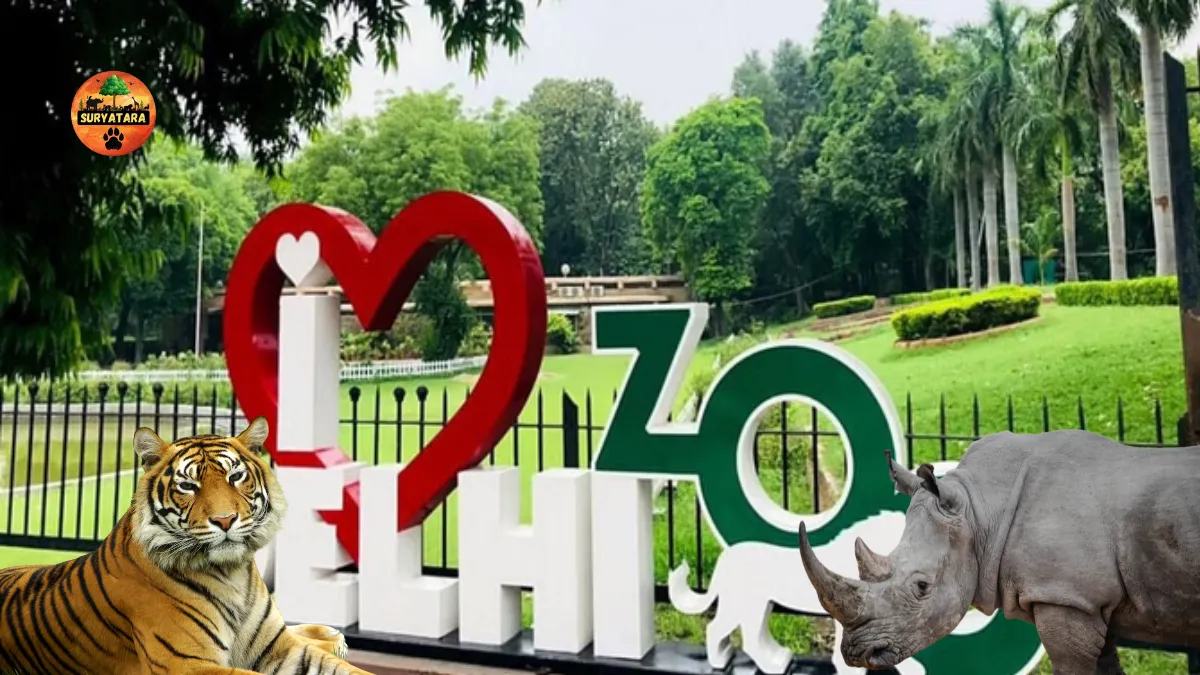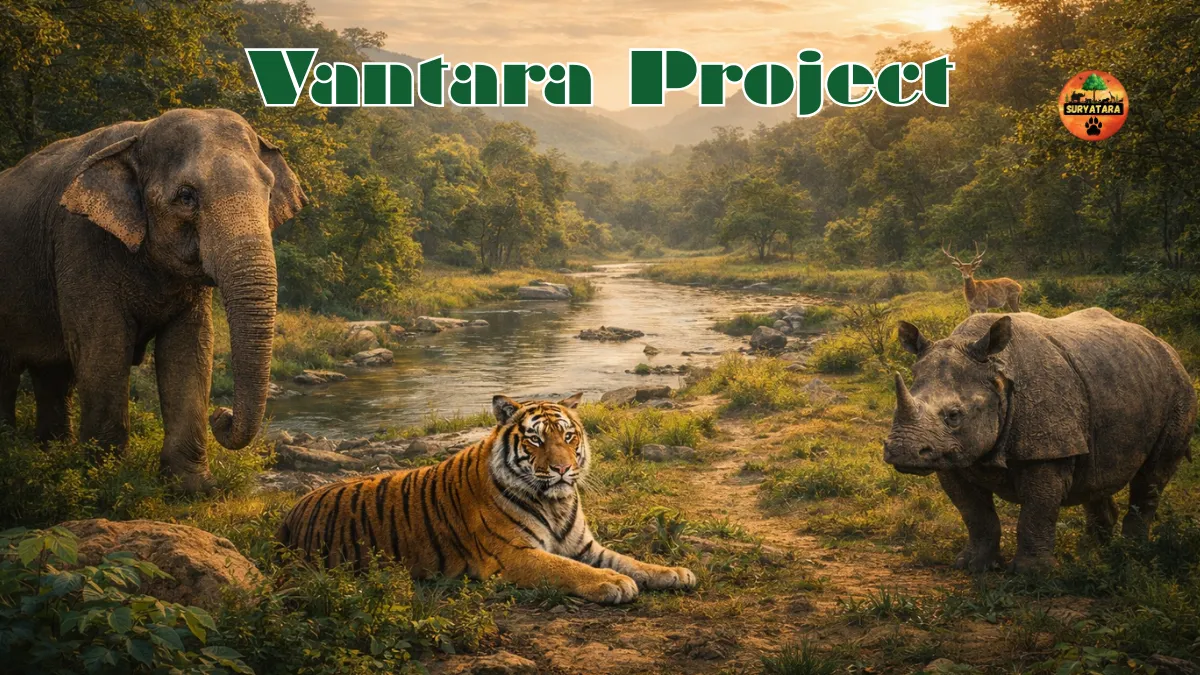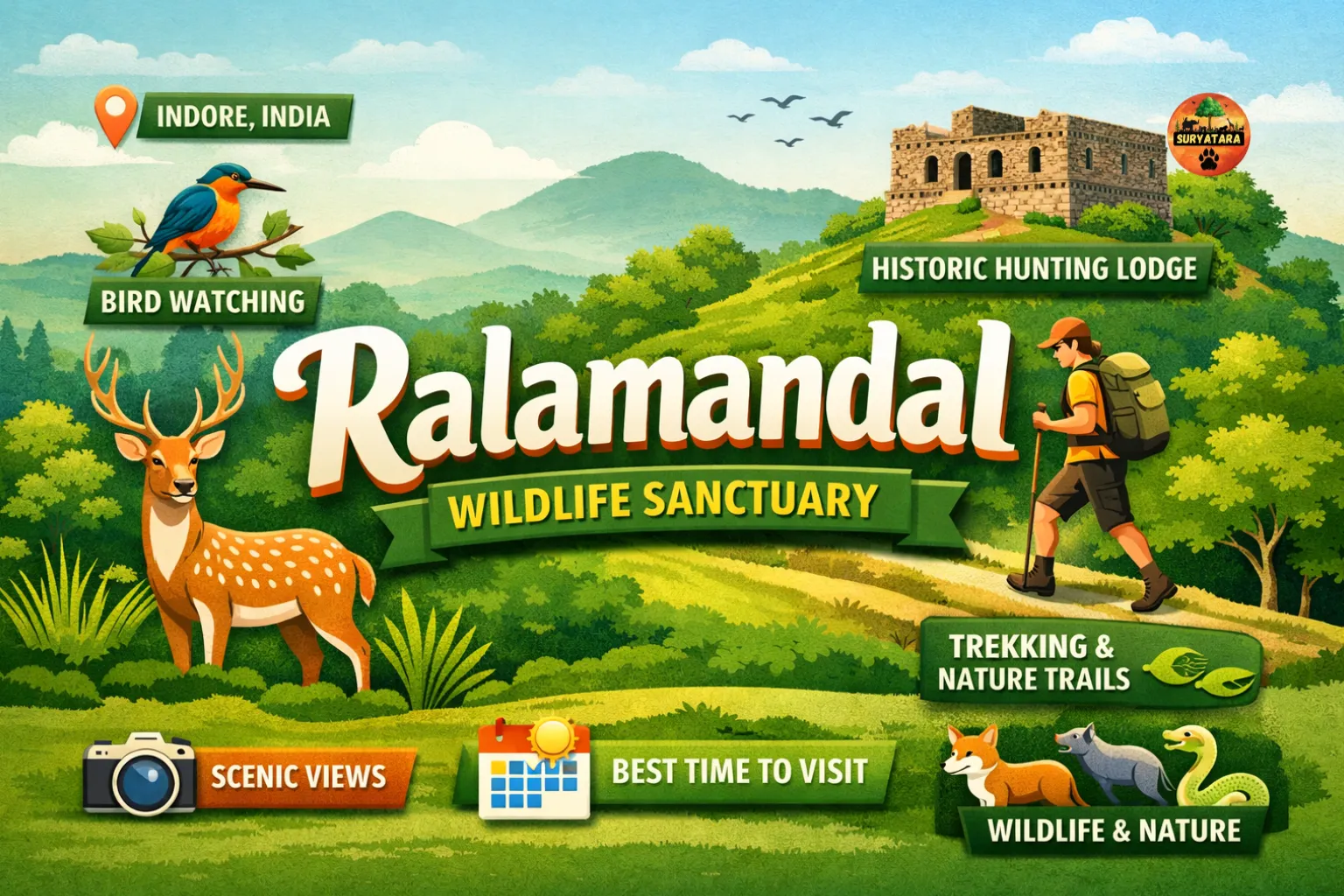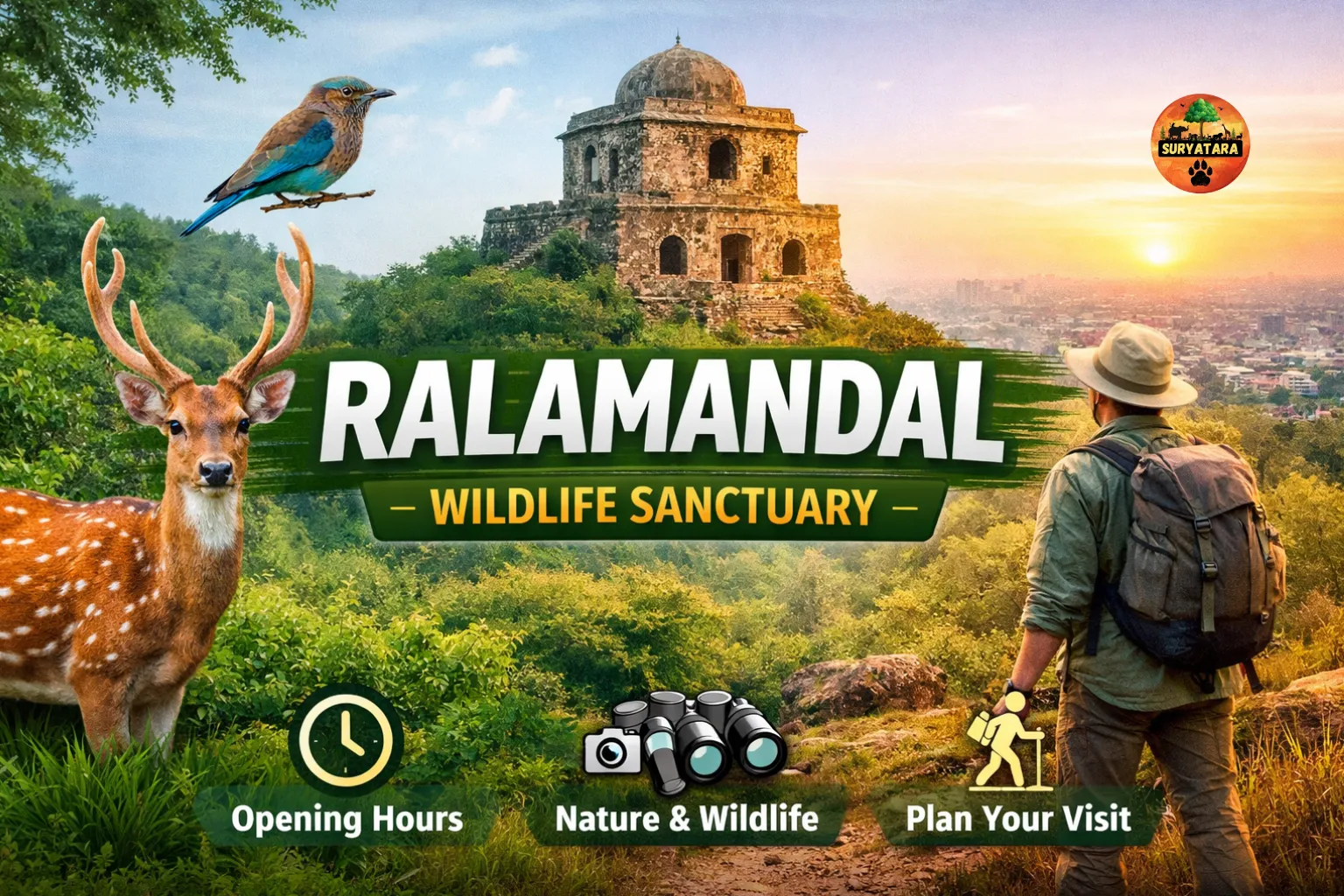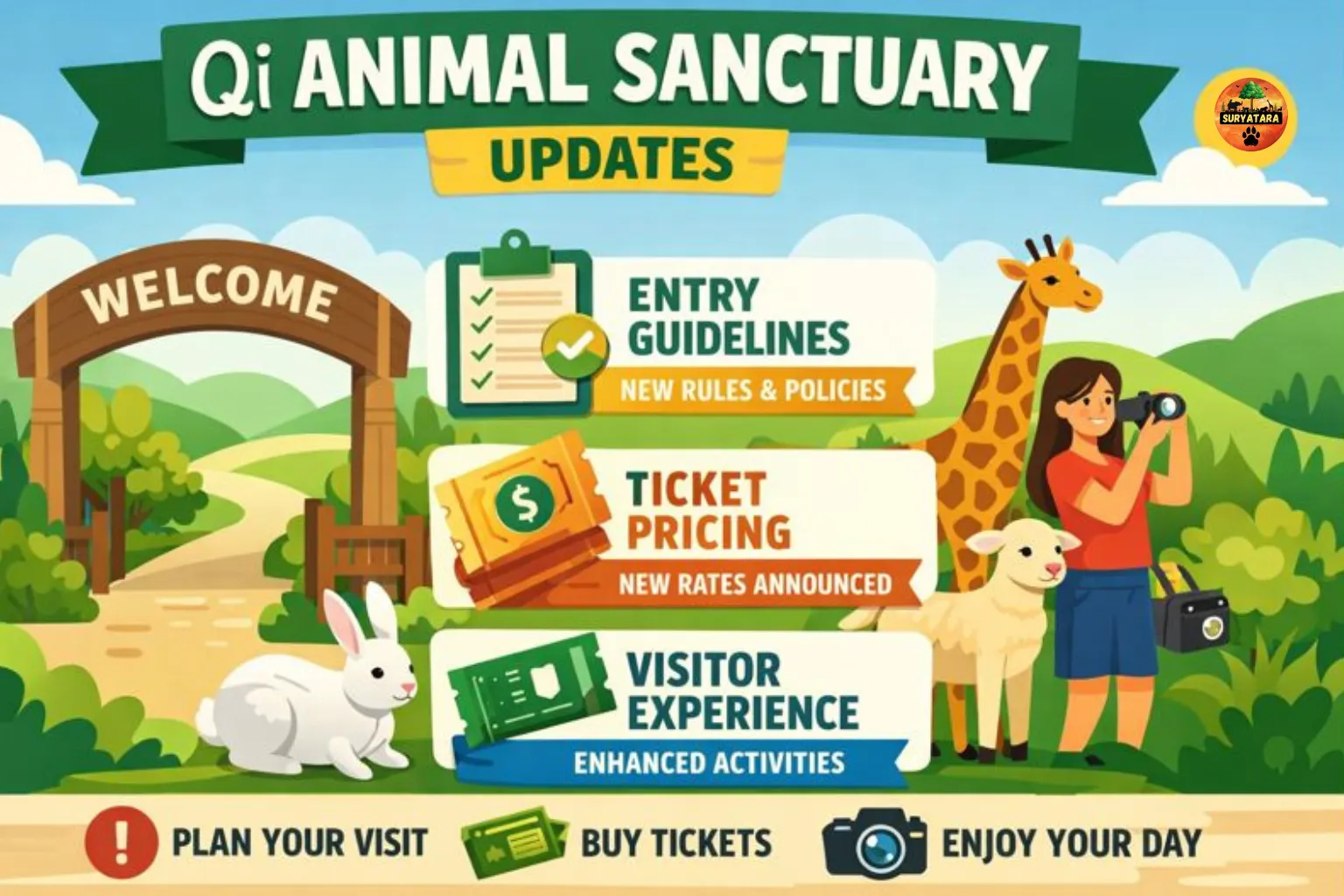The Delhi Zoo, officially known as the National Zoological Park, is entering a new phase of modernization as it adopts the Vantara model for its administrative and operational overhaul. This initiative is aimed at elevating the zoo’s standards to align with international practices, ensuring better animal welfare, staff efficiency, and visitor experience.
The move comes after the zoo temporarily closed due to a recent bird flu outbreak. Authorities have confirmed that all necessary health precautions are in place, and the zoo is set to reopen to the public after October 30.
Expert-Led Staff Training in Progress
A specialized training program has been launched to prepare the zoo staff for the transition to the Vantara model. A six-member expert team from Gujarat-based Green Zoological Rescue and Research Centre, known for its expertise in animal management, is conducting these sessions.
The training covers staff across all departments including:
- Animal husbandry
- Medical care
- Maintenance and sanitation
- Record management
- Visitor safety
The primary focus of the training is to introduce scientific approaches to animal health, diet, enrichment, and behavior management, ensuring that staff can provide the highest standard of care to the animals.
Key Objectives of the Training Program
According to Zoo Director Dr. Sanjiv Kumar, the initiative is a critical step toward improving the zoo’s management and conservation efforts. “Improving staff knowledge and perspective is essential for effective wildlife conservation. Continuous training ensures that every employee becomes proficient in scientific management, animal behavior studies, and safety standards,” he said.
This seven-day training program is part of a larger strategic plan to address issues that the Delhi Zoo has faced in recent years, including animal mortality and administrative challenges. The main goals of the program include:
- Introducing new methods for daily animal routines
- Implementing enrichment techniques to reduce stress
- Ensuring proper enclosure cleaning and maintenance
- Monitoring environmental conditions and animal health
Technology and Modern Practices in Zoo Management
The Vantara experts emphasize that integrating technology into zoo operations can significantly improve animal welfare. By monitoring health indicators, behavioral patterns, and environmental conditions digitally, the zoo can reduce stress among animals, which in turn improves their lifespan and reproductive health.
Moreover, the Delhi Zoo administration is considering the creation of a research-based animal care unit modeled on Vantara practices. This unit would focus on ongoing scientific research, technical innovations, and advanced management practices to further enhance animal welfare and operational efficiency.
Also read: Famous Raipur Tigress ‘Bijli’ Shifted to Vantara India for Advanced Treatment
Improving Visitor Experience
Alongside internal improvements, the zoo management is also focused on providing a better experience for visitors. With enhanced staff training and improved animal care practices, visitors can expect a more organized and educational environment. Safety and hygiene protocols have been strengthened, particularly in light of the recent bird flu outbreak, ensuring that guests can enjoy their visit without concern.
Looking Ahead: Reopening Plans
With training underway and operational improvements in progress, the Delhi Zoo is preparing to reopen after October 30. The zoo administration assures that all measures have been taken to ensure both animal welfare and visitor safety.
The reopening marks a significant milestone in the zoo’s journey toward modernization. By adopting the Vantara model, the Delhi Zoo aims not only to improve its internal management but also to set a benchmark for other zoological parks in India.
Also read: Vantara: A Global Model for Animal Welfare and Conservation
Conclusion
TheDelhi Zoo’s adoption of the Vantara model represents a major step forward in modern zoo management. Through expert-led training, technological integration, and a focus on animal welfare, the zoo is poised to become a model institution for wildlife conservation and visitor engagement. As it prepares to reopen, the emphasis on scientific management, transparent operations, and continuous staff development ensures that the Delhi Zoo is on track to meet international standards and provide a safe, enriching environment for both animals and visitors alike.
This transformation highlights India’s growing commitment to modern wildlife management, blending traditional care practices with global best practices for sustainable conservation.
